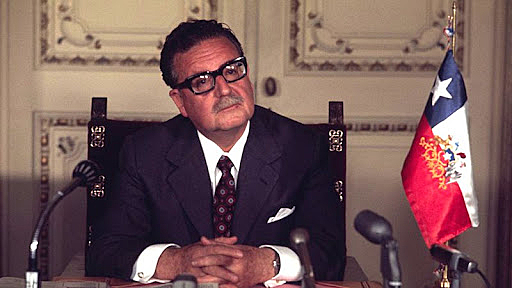In September 1970, Raul Ellwanger was not even 23 years old when he arrived in Chile to escape Brazil’s military dictatorship. He stayed until the brutal coup that overthrew Salvador Allende’s government on September 11, 1973. A law student and member of the leftist guerrilla group Vanguarda Armada Revolucionária Palmares (VAR-Palmares), Ellwanger built a successful musical career in exile, with his compositions recorded by iconic artists like the Brazilians Elis Regina, Beth Carvalho, and Argentinian Mercedes Sosa.
“I’m deeply grateful to the Chilean people and proud to have taken part in that process, to have taken risks like so many Brazilians, and to have given something of ourselves to that country in return for the care and protection they offered,” he told BdF. Ellwanger is one of many former Brazilian exiles who have maintained strong ties with Chile, frequently returning for commemorative events and memory activism.
In this interview, he reflects on his experience living under Allende’s socialist government, describing it as “a beautiful, though somewhat naïve project”, and on the violent repression that followed the coup, which ushered in a 16-year military dictatorship.
Read the resume of the interview below:
BdF: Why did you decide to flee to Chile?
Raul Ellwanger: I left for Chile after a year and a half living underground in Brazil, constantly at risk. My political group was severely weakened and couldn’t support me anymore. So, it was a mix of personal burnout and a broader collapse of structure. I asked for authorization to leave and went.
Did you have any support network there?
Not at all. I left with barely a change of clothes, some money, and false documents. I traveled overland, city by city, until I got to Santiago. There, I took another bus 500 kilometers south to Concepción, where I had the name of professor Ruy Mauro Marini, a contact passed to me by someone in the resistance. He was a key support figure for Brazilian exiles and welcomed me generously.
What was your daily life like?
What struck me most was discovering what democracy felt like. On November 4, 1970, I witnessed over a million people flooding the Alameda in Santiago to celebrate Allende’s inauguration. We were eager to embrace that freedom. I could finally study theories I had only heard about. The Chilean people were warm and welcoming. Life was intense: full of rallies, debates, music, and hope. Until the coup came and changed everything.
How did Brazilians view the Allende government?
Having lived through Brazil’s brutal repression, we weren’t as optimistic as Chileans about the military’s political neutrality. Allende’s project was beautiful and humanitarian, and we supported it wholeheartedly, even at personal risk. But we knew the military couldn’t be fully trusted. Sadly, that fear proved correct. If I had to describe the government, I’d say it was optimistic, but naïve.
Has your view of the government changed over time?
Not much, but I do see it with more admiration now. Back then, we were too focused on resisting dictatorship to appreciate what was achieved: fishermen, miners, peasants, students, people from all walks of life, building a democratic, politically active nation. I have more tenderness for that effort now, even knowing it was doomed.
What were the warning signs before the coup?
It was chaos. Even before Allende took office, the Christian Democrats demanded that his coalition sign a ‘commitment to democracy’ letter, basically a symbolic humiliation. Then came sabotage, judicial harassment, media attacks, economic destabilization, and terrorism: power grid bombings, non-stop trucking strikes. The elite and foreign interests were clearly orchestrating something. We just didn’t know the full scope.
What do you remember most about the day of the coup?
It started like any other. I went to the university expecting to join the resistance, but nothing was organized. I returned home to help hide people, including children. That night, our house was raided. Soldiers smashed everything, arrested my friend Bob, and stole all our belongings. What haunted me most was the sound of the planes flying low over our window, circling the city before bombing La Moneda Palace. To this day, I panic when I hear loud jets.
Why were Brazilians targeted by the Pinochet regime?
Within days, the military junta started accusing foreigners of stirring unrest. It was propaganda to stoke nationalism. They released lists of alleged enemies, including prominent Brazilian exiles like Teotônio dos Santos and José Maria Rabelo. Our house was even reported by a neighbor as being ‘armed foreigners,’ which led to the raid.
When and how did you leave Chile?
I spent 40 days underground, helping others find refuge through church shelters and organizations like the European Migration Committee. I was a legal resident in Chile, not a refugee, but had nowhere to go. Eventually, a supportive family got me a 24-hour transit permit. I took a bus across the Andes and reached Mendoza, Argentina, by land.
How do you see Chile’s reckoning with its dictatorial past?
Chile has had a contradictory process. On one hand, many perpetrators, both high-ranking and lower-level, were tried and convicted, which never happened in Brazil. On the other, the constitution remained a legacy of Pinochet’s regime, and impunity still lingers. Chile has zigzagged between accountability and denial, between justice and forgetting. Still, it has done more than most countries in the region.
What did your experience in Chile leave you with?
I became someone else. Living in Chile and, later, Argentina, opened my eyes to Latin America’s richness: its cultures, music, food, people, and revolutionary histories. I studied sociology in Concepción, Santiago, and Buenos Aires, and music composition as well. Though I never earned a degree, I lived deeply and learned much.
I’m immensely grateful to Chile and its people. Since 2011, we’ve organized events like Brazil Thanks Chile and Viva Chile, visiting memorial sites and honoring those who resisted. We owe a great debt of gratitude, and feel a deep pride, for standing with Chileans in both good times and dark ones.




